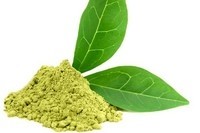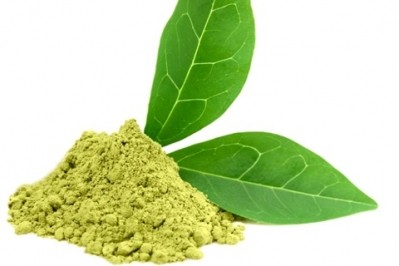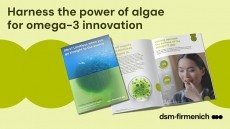Study deems tea alkaloid safe and effective for cholesterol reduction

Many people consume tea or coffee to help them wake up and stay alert. Most people would thank the caffeine in these beverages for its ability to help the user be more alert, but its less well-known derivative theacrine has a lot to do with the potency of these beverages as well. Theacrine is a purine alkaloid concerted from caffeine by hydration, oxidation, and methylation.
“Acute supplementation [of theacrine] is theorized to enhance mood state, increase energy production, heighten mental focus, and strengthen motivation,” wrote the researchers of a study published in the Journal of the International Society of Sports Nutrition.
The researchers behind the paper studied TeaCrine, the theacrine product marketed by Compound Solutions Inc., who also funded the study, through a randomized, placebo controlled, double-blind analysis.
A product in its infancy with limited research
“There is limited research available on chronic theacrine supplementation in humans,” the researchers wrote. “Moreover, to our knowledge, there is no published research in humans that examines the safety of chronic theacrine supplementation.”
This led to the research questions evaluated in their clinical trial. Sixty men and women (average age 22 years, average height 175 cm, and average weight 77 kg) participated in the study. Subjects were asked to maintain their normal dietary intake and exercise habits for the duration of the study, as well as keep a diet log.
The subjects were then divided into three different groups—one group assigned to take a low dose of TeaCrine (200 mg), another group a higher dose (300 mg), and the third group, a control one, 300 mg of maltodextrin. Supplementation was taken once per day in pill form, after breakfast but before lunch, with 8 oz of water over 8 weeks. Subjects were asked to refrain from consuming caffeine, fast, or exercise within 48 hours of testing.
Supplementation-induced differences were assessed for clinical safety markers, heart rate, blood pressure, and body composition.
Positively affecting cholesterol, but no cognitive difference
After collecting data from subjects in clinic and analyzing it, the researchers found that “TeaCrine supplementation in humans does not affect clinical safety markers,” meaning it did not negatively alter the standard heart rate and blood pressure. As a comparison point, caffeine has been observed to increase blood pressure.
Moreover, body composition did not change, but there was a reduction in total cholesterol and low density lipoprotein. In terms of habituation and addiction, the researchers said “there was no evidence of a tachyphylactic response that is typical of neuroactive agents such as caffeine and other stimulants.” However, the researchers note that "values for energy, focus, concentration, anxiety, motivation to exercise, and POMS remained stable in all groups across the 8-week study protocol," indicating no change in these values.
"This study was set up to assess the overall safety, tolerance and to look for any tacyphylactic response," Dr. Hector Lopez, a principal at The Center for Applied Health Sciences, told NutraIngredients-USA. "So, it was not actually designed to assess if TeaCrine was efficacious for improving cognitive performance or mood, energy, focus, etc. These subjects were assessed prior to their daily dose of TeaCrine."
"With caffeine (and other stimulants), tachyphylaxis occurs quite readily even after simply less than seven days of dosing," he added, "meaning that not only does caffeine begin to lose its benefits on perceived energy and exertion and alertness, but the individual's baseline measures of fatigue, energy, alertness, etc. actually worsen over time."
The researchers note, however, that past studies on mice have shown mixed results of how theacrine affects the brain, and that because the current study on humans was done over a relatively short duration, more studies need to be conducted to determine how and whether or not theacrine can affect these cognitive values.
Correction:
The article was edited to include quotes from Dr. Hector Lopez, who is also one of the intellectual property holders on patents pending for compositions and methods of use of theacrine.
Source: Journal of the International Society of Sports Nutrition
Published online ahead of print, DOI: 10.1186/s12970-016-0113-3
Safety of TeaCrine®, a non-habituating, naturally-occurring purine alkaloid over eight weeks of continuous use
Authors: L. Taylor, P. Mumford, M. Roberts, S. Hayward, J. Mullins, S. Urbina, C. Wilborn
















